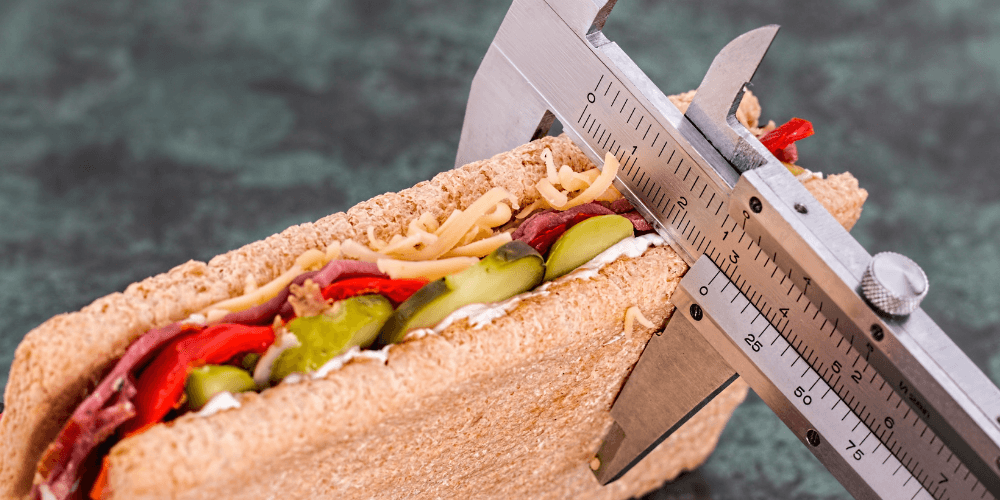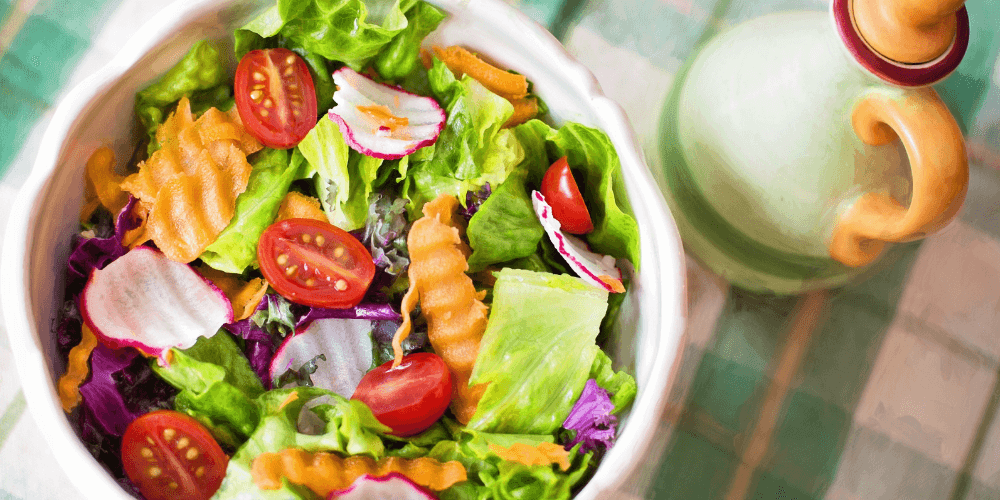Fast & Free Shipping In The US

If I told you a handful of chips and a handful of carrots had exactly the same number of calories, which one would you choose for your next snack? Probably the first option, right? Chips taste better and contain the same amount of calories! Why go with carrots?
Calories are simply an indicator of the amount of energy contained in a certain food. They tell us nothing about the overall quality of food and/or its nutrition levels. A healthy eating plan cannot be based only on the number of calories coming in and going out of your body. Not that monitoring your calorie intake is a bad idea, but this should not be your only guide when deciding what to eat. Here are 10 reasons to focus more on portions, quality of ingredients, and the pleasure of eating as well as the nutritional density of our food.
1. Counting calories takes all the pleasure away from eating
Sharing a meal with loved ones is one of the greatest pleasures in life. Counting the calories in every single bite you take is the best way to ensure you don’t enjoy your meal. Eventually, that habit can even lead to a bad relationship with food. Then something that was supposed to be your ally will turn into your arch- enemy, one you’ll have to subdue and control.
2. Counting calories usually leads to consuming processed food
Homemade food does not come with a label with supplement facts and the exact amount of calories per serving. However, if you are careful when preparing your meals, chances are they will be more nutritious and less harmful than pre-packaged ones, which are often full of preservatives and artificial ingredients. Would you like to know the nutritional value of over 13,000 foods commonly consumed in the USA? Click here now! The link will take you to the USDA research site where you can search for any food and find out exactly what it contains, vitamins, nutrients, calories, they are all there. Don’t settle for cheap processed food, if you feel like you MUST count calories, do a little research and really know what is in your next meal.
3. Consuming the exact amount of calories your body requires does not guarantee that you are going to get all the nutrients you need
All calories are not created equal. Let’s say a chart tells you that your body type and activity level indicate you need 2,500 calories per day. Don’t fall into the common trap of choosing foods for their calorie level instead of their nutritional one. A can of diet soda has 0 calories. A strawberry smoothie made with coconut milk and peanut butter has over 200 calories. Which of the two options is more beneficial?
4. Counting calories teaches you to ignore your body’s signals
We all are born with the ability to know when we’re hungry and when we have had enough. The problem is these signs are subtle and require mindful concentration in order to be recognized. Reconnecting with our bodies and developing our goals accordingly is better than relying on the numbers and words on the back of a package.
5. Restricting calorie consumption does not work on the long-term
The trick to losing weight, and maintaining it, is learning how to eat healthy for life. We have to learn how to balance healthy foods with the not-so-healthy ones, accept setbacks and establish healthy relationships with food. All of these things are difficult when you are obsessed with a number.

6. Counting calories does not address the root of the problem
We don’t eat just to nourish our bodies. If that were the case, we would all be at our ideal weight. We eat because we’re hungry, yes, but also to avoid having to feel uncomfortable feelings like boredom, sadness, anxiety, or fear. Find a way to resolve any emotional conflicts that lead to overeating, don’t resort to calorie control as an escape from the real problem.
7. What matters is the quality of food, not the number of calories in it
Food manufacturers make it seem easy to lose weight. All we have to do is eat only “light”, “low fat”, or “low calorie” options and we will be all set. Don’t fall for it! Many times these foods are less healthy than their original incarnations. Fat is replaced with sugar, and sugar is replaced with potentially harmful artificial sweeteners. Nutrient-rich foods such as nuts, avocados, eggs, olive oil, and chickpeas may be high in fat and calories per serving but will serve our overall health better than a sugar-free cookie any day.
8. Digesting fat leads to a feeling of fullness
Good fats are an essential part of any effective weight loss program, as these are slow to digest, which helps us, among other things, to feel and remain full until our next meal. Low-fat meals tend to leave us unsatisfied. They also lead to bounce-back hunger, as the body’s blood sugar level jumps high and then plunges low again. A quick drop in blood sugar leads to cravings, which can then lead to binge eating, and nobody wants that!
9. Counting calories puts the body in a state of stress which then causes the body to store fat
As you know, your state of mind can affect your body’s functioning. If you are concerned about the calories you consume, your body enters a state of stress, which raises cortisol levels. Cortisol blunts metabolism. The body then protects itself by storing as much energy as possible, thus promoting fat deposits and cravings for ice cream and chips.
10. Your body is not a walking mathematical formula
Have you heard that 3,500 calories equal one pound? It’s a very good estimate, yes, but unfortunately, in reality, people don’t work with such precision. When my treadmill tells me I burned 3,500 calories, does that mean I should be able to climb down and get on the scale and see a one pound weight loss? Well, first I would probably have to crawl to the scale because it would take quite a bit of running to burn that many calories. Once I got there, though, would I see exactly one pound of weight gone from my total? No! Human bodies don’t work that way.
In the end, a calorie is just a number. Instead of obsessing about them, follow your instincts, listen to your body, focus on the quality of your ingredients and portion control, and this will not only help you achieve a more balanced diet but a happier life as well.